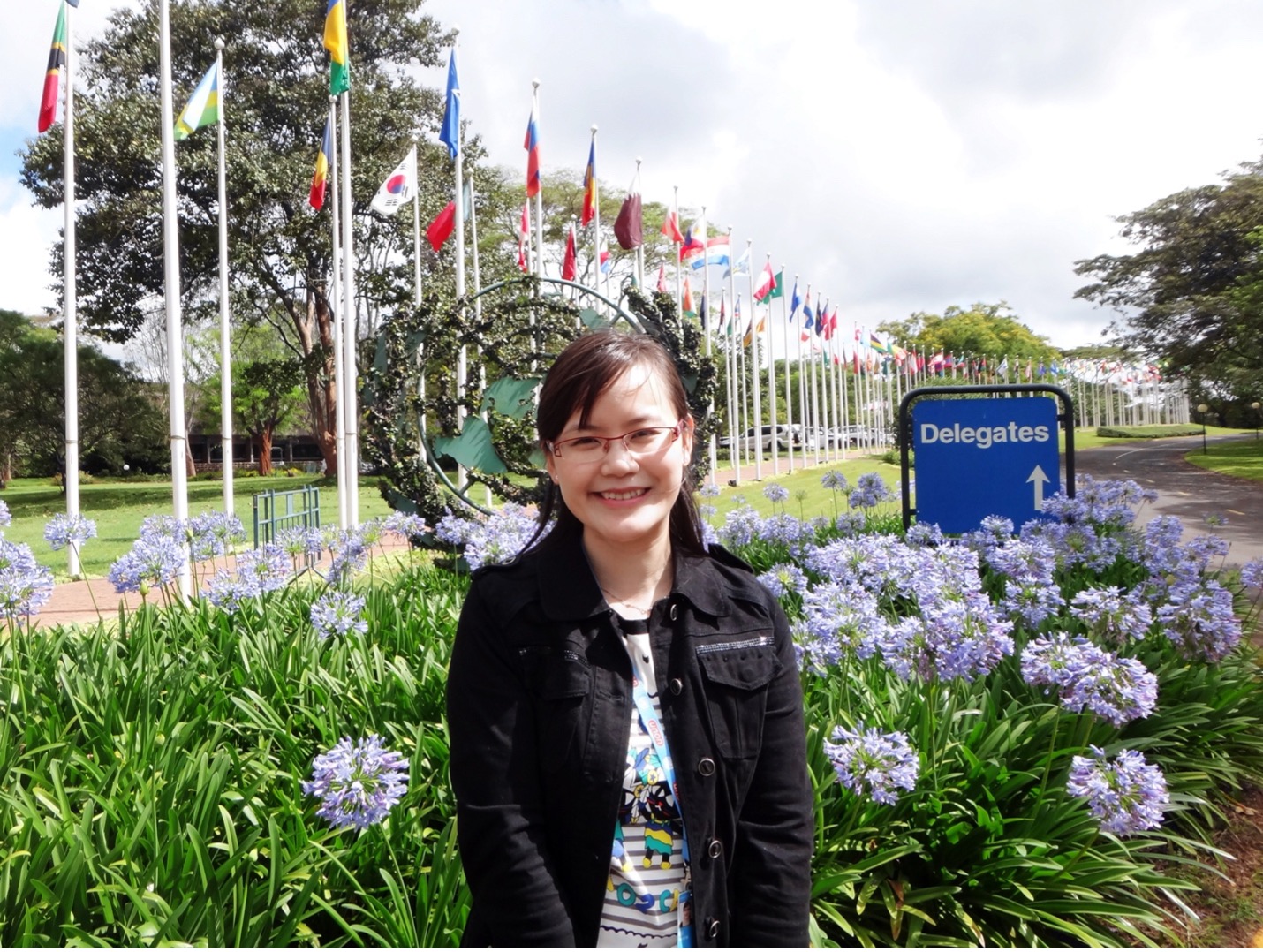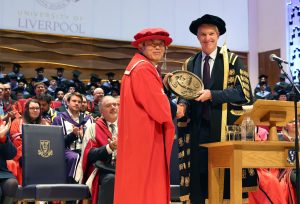19 Oct 2021
In part one of our sustainability series, Dr Yunqing Xu, of the Department of Urban Planning and Design, as well as the University Research Centre for Urban and Environmental Studies (UES), talks to us about the sustainability of cities.
1. What are you currently working on?
My research focuses on the impact of urban development models, particularly the property-led urban development model in China. I’m interested in evaluating the sustainability of cities, so I’m looking at how the model affects sustainability and exploring ways we can reform and improve it. I also examine how government and planners, can collaborate with property developers, residents and communities to shape a more sustainable built environment.

(Dr Xu at the 2019 UN-Habitat Urban Economy Forum in Toronto, Canada, where she was invited to speak)
2. Why did you choose this field?
I am driven by the desire to understand the underlying factors that shape the dominant urban development models and determine its impacts on sustainability, so as to identify adaptive institutional changes for a better future. The property-led model, which we have been using for decades, can be a powerful tool for instant economic growth and recovery and urban transformation, but it can also negatively influence the environment, society as well as economy in the long-run.
3. What are the challenges in your research?
The biggest challenge in my research is complexity and dynamics. Because this is an interdisciplinary subject that involves multiple stakeholders with different bargaining power, I need to collect data and information from different perspectives and unveil the abstract institutional factors and relations that govern their behaviour and changes. It’s not just about the figures and statistics; I need to find the right people to talk to, understand what they really mean and the reasons behind their choices.

(Dr Xu leading an international field trip to the China Embassy in Singapore, in 2016)
4. What would you say is your favourite thing about your research?
Finding the invisible relationships and mechanisms that work in the real world without controlled conditions. Complexity is a challenge, but it’s also what attracts me to this research.
I also enjoy exploring how to make things feasible in the local context. Urban development is a very contextual process. Theories and ideas are not always enough; they need to be localised to work in real communities.

(Dr Xu working at the global headquarters of the UN Human Settlements Programme (UN-Habitat) in Nairobi, Kenya, in 2012)
5. What are some of the ways that cities can become more sustainable?
The important thing now is to drive more sustainable behaviours, long-term views and system thinking while meeting the growing and diverse social and economic needs of society at the same time.
To do so, we need mechanism with efficiency. However, with too much rigidity we lose the flexibility to adapt. This means we cannot rely on one-size-fits-all policies, and need to learn to master complexity.
6. Do you have any specific examples that you've come across in your research recently?
One example that comes to mind is from urban regeneration. Previously in China, we would demolish older housing after asking residents to move out, and construct high-end properties in their place, with different functions and users.
But now, we’re talking about how to involve the residents. We’re not only rebuilding or renovating housing, but also developing more green space and public amenities related to education, aged care and public infrastructure.
To get this process right, we need to guide and incentivise the private sector, including the developers, to agree to this community-minded and collaborative approach. They can enjoy more space and rights to develop and at the same time, they can make a positive contribution to the community and environment.

(Dr Xu speaking at the Global Chinese Real Estate Congress in Beijing, China, in 2013)
7. What have been some of the biggest changes in your field that you've witnessed during your career?
The general attitude towards development is changing. In the past, people thought we needed to develop first and worry about the environment and other problems later. Now everyone is talking about high-quality growth. I think we are working in a more sustainability-friendly general environment than decades ago, although we also face more accumulated problems. Today we also have a far greater capacity to be more sustainable as new technologies and tools allow us to have less impact on the environment.

(Dr Xu working at the global headquarters of the UN Human Settlements Programme (UN-Habitat) in Nairobi, Kenya, in 2013)
8. Why is sustainability and sustainability research important?
Sustainability is an eternal question that concerns every one of us – and it will impact our children and their future. According to the UN, it is estimated that we will have a global population of 9.8 billion by 2050 and 68% of them will be living in cities, as compared to 50% today. There will be more people, more complex social relations, fewer resources and a higher expectation for quality of life. That’s why sustainability is something we should all strive for in everything we do.
By Yi Qian
Edited by Patricia Pieterse
Photos courtesy of Dr Yunqing Xu
19 Oct 2021







